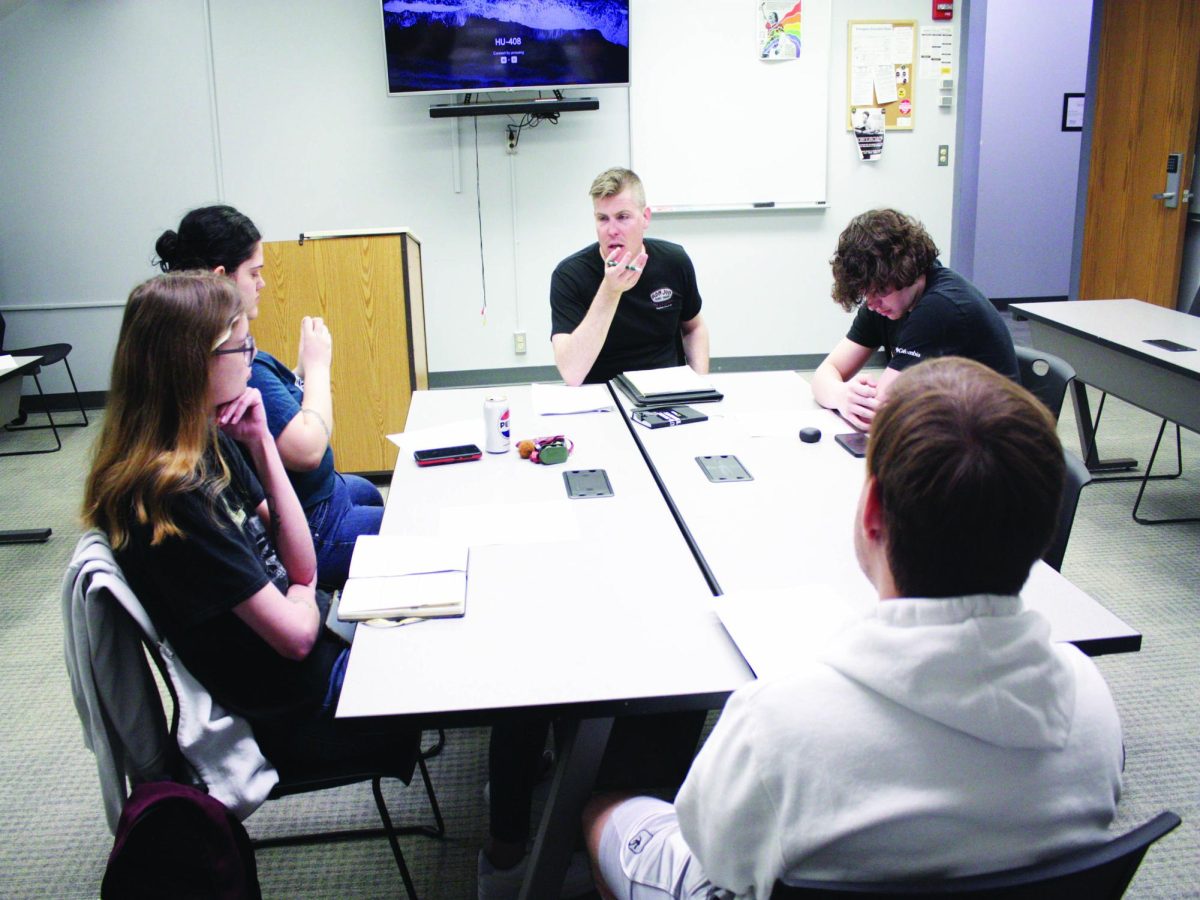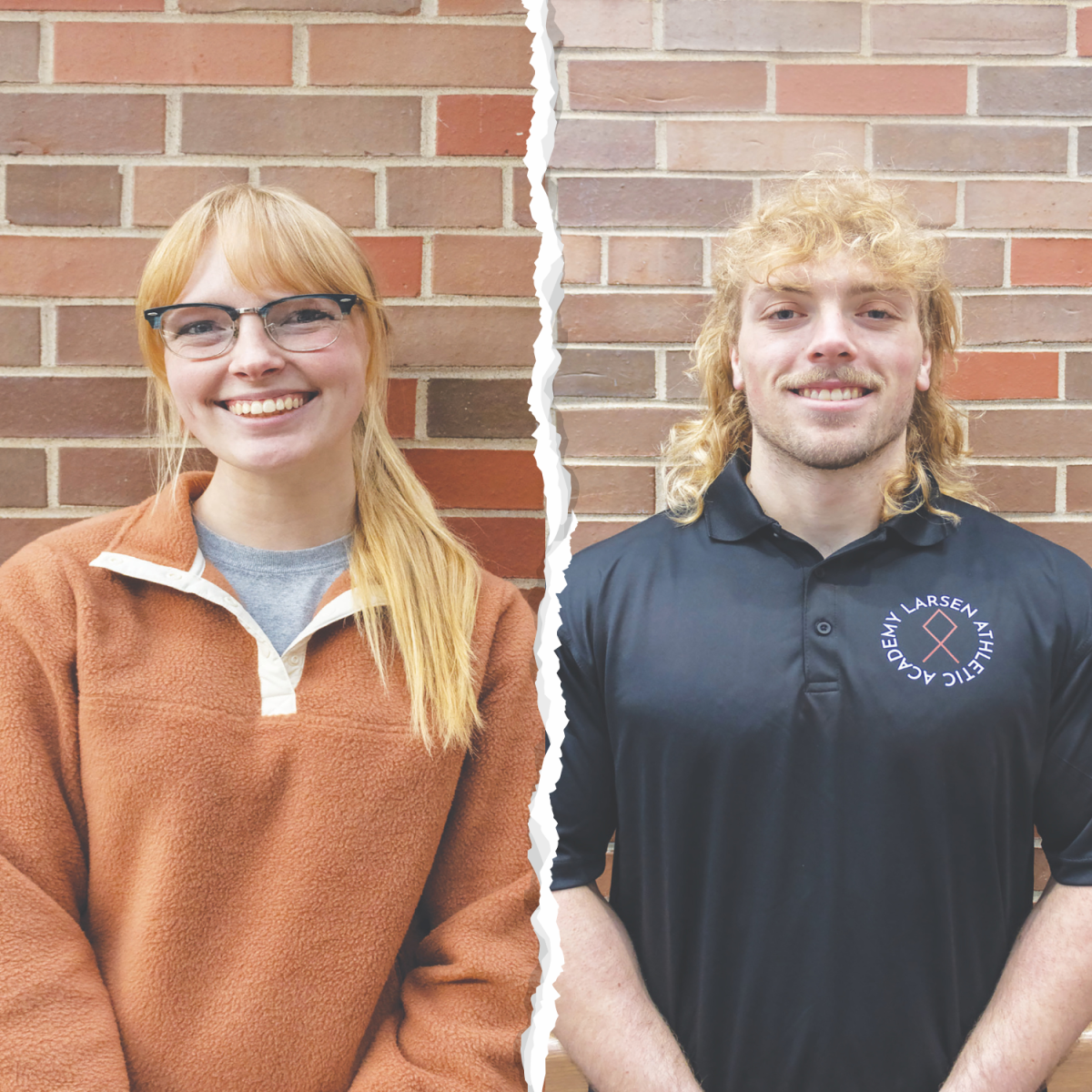Vietnam veteran returns years later, shares his story
April 2, 2019
Bob Ensz was drafted into the Vietnam war back in 1969. Fifty years later, he was able to experience the country again. Last Thursday, in Connell Hall 131, the Rotaract club sponsored him to be a guest speaker to share his story of his of Vietnam after the war.
Ensz’s brother, who also served in Vietnam, took advantage of a deal that Oversees Adventure and Travel was offering: a tour along Vietnam and Cambodia for three and a half weeks. Bob decided to come along to see how the country had changed.
When I heard Ensz say that he and his brother went on a trip together to reexperience their time in the war, I instantly was thinking that having that experience made their time visiting Vietnam more memorable which it did.
“I was eager to go back because I know that they welcome tourists and I wanted to see what the country was like 50 years later,” Ensz said. “The only thing that felt strange to me was that we flew into Hanoi, the capitol of North Vietnam where our pilots were captured and held.
“Now we are visiting this as now we are tourists. I enjoyed the opportunity to intermingle with Vietnamese people again.”
Despite leaving Vietnam, Ensz still kept updated with the on-going conflict.
“When I left, the war was still going on,” Ensz said. “They were starting to bring troops home, so I knew it was going to be ending. I realized by the time that I left the service, I just assumed that it was over, so, I left it behind and read about it.
“I re-enrolled into law school was accepted and finished my law degree,” Ensz said. “I practiced law for about 14 years on the district court bench and was a judge for 21 years in seven different county districts.”
Ensz’ presentation, which included a slideshow, helped the audience experience what he experienced in his return trip to Vietnam. Ensz wanted to reminisce about his time traveling back to Vietnam and it’s new culture rather than his time in the war.
“When I served, I could probably bring photos and stuff from back then but that was just pictures of the camp and comrades in uniform,” Ensz said. “It was significant to me that we could meet those that we fought against 50 years ago, the North Vietnamese and Vietnam.”
Ensz wanted the guests of his presentation to take home that Vietnam is a country of value.
“Vietnam is a country that has changed a lot,” Ensz said. “It is becoming a progression country but, in some ways, it is still backwards. You really do not have a say in anything that it was an authoritarian government, that is what we were fighting against back then, but they did not want it.
“This is what Vietnam wants, this is what they got and now they are excited to have tourists come to see their beautiful country and that they are good people.”
The draft was an integral part of the war; all young men were required to sign up for the draft, or otherwise face persecution.
“I was drafted and was ordered into the war in the 18th engineering regrade,” Ensz said. “I did not have a choice. They needed so many people overseas that they tell you where to go. During that time of basic training, they evaluate you, what your skills are and what your background is.”
Ensz was assigned to his permanent unit, and went to Vietnam in January of 1969 and returned August of 1970.
“I was a legal clerk in the battalion headquarters,” Ensz said. “I served as a type of court reporter for court martials, like a criminal trial. I would keep a record of what happened in the trial. I assisted the attorneys trying that case and the officer that was presiding over that case.”
Ensz stated that though he was attacked periodically by mortars and had to be on alert most of the time, he was never put into any real danger.
“[Out of everyone in Vietnam] 80 percent of people were what they called support and 20 percent were fighting as infantry or pilots,” Ensz said. “Most of us did not fight, we were prepared to fight but that was not our main job.”
Ensz realized there was not much remorse for soldiers in Vietnam, and emphasized the need for appreciation for them. Those who returned from Vietnam were met with disrespectful attitudes and harsh words.
“There is a certain amount of pride being in the service,” Ensz said. “At that time, since the war was such an unpopular thing, we were looked up on the same way. You just had to come back and jump into civilian life. You would see comrades right next to them and they had to come back into life as if nothing happened which it really had.”
History is not my favorite thing of all time, but Ensz presentation was a new type of presentation for me to listen to.






